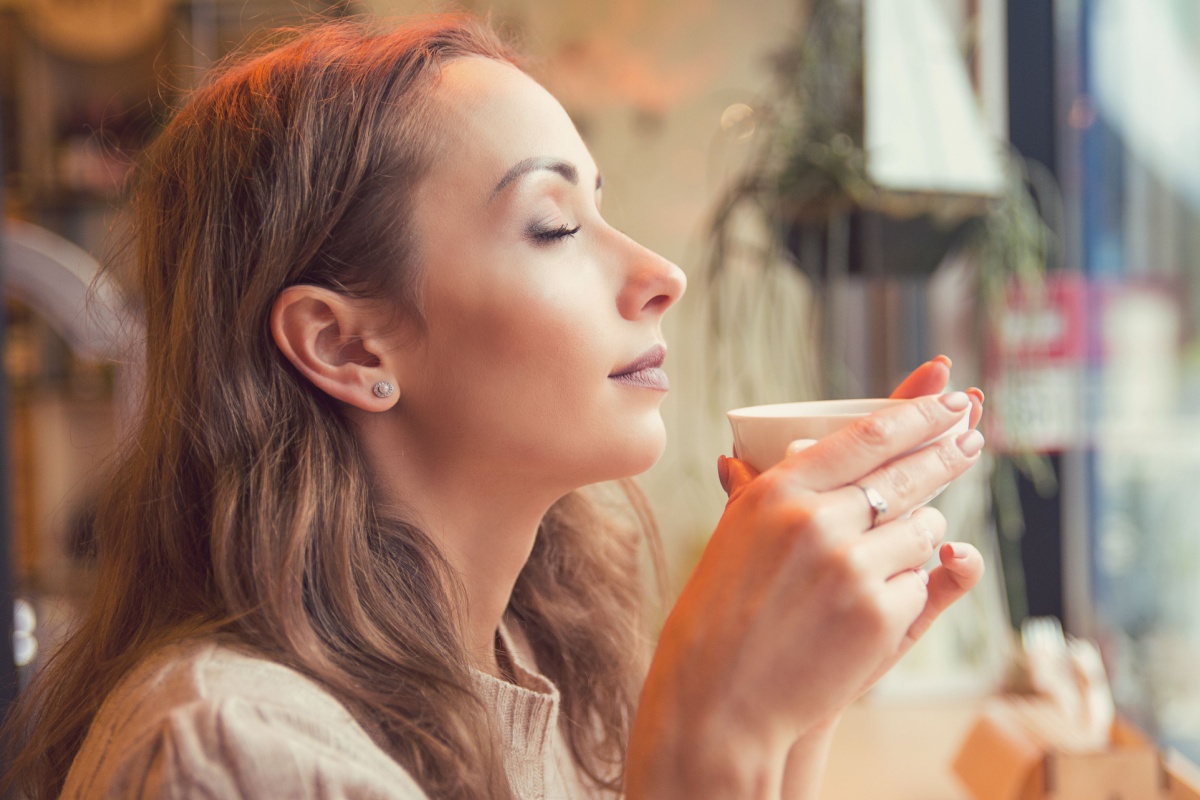15 Soothing Teas to Help Ease Anxiety and Stress
In today’s fast-paced world, stress and anxiety are common challenges many people face. Fortunately, nature offers calming remedies that help us unwind and feel more at peace. One of the most soothing ways to relax is by sipping on a warm cup of tea.
Certain herbal teas are known for their calming properties and have been used for centuries to ease anxiety and reduce stress. Here are some of the best teas that can help you relax and improve your overall well-being.
Chamomile Tea
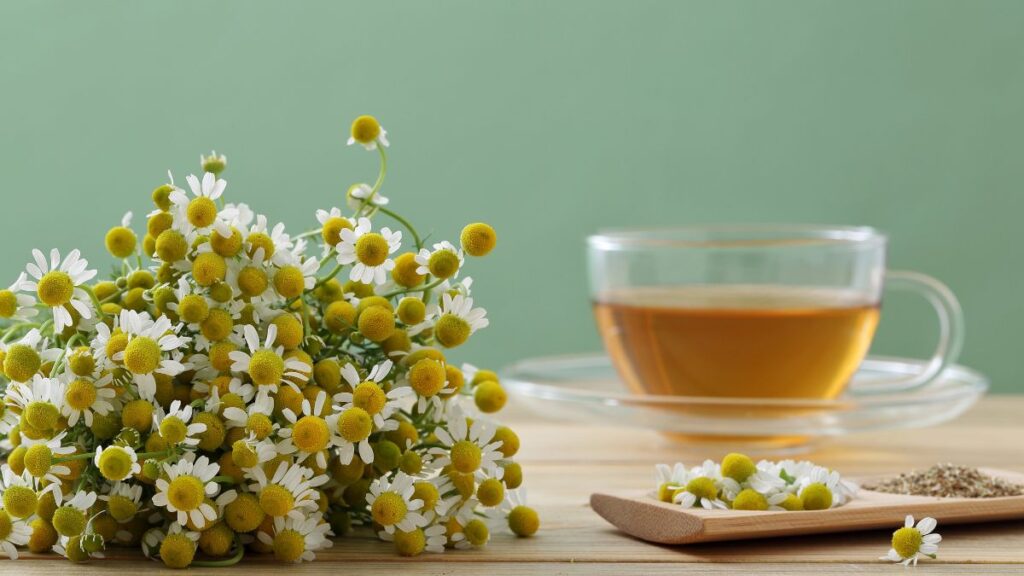
Chamomile tea is one of the most popular teas for relaxation, and it’s known for its gentle calming effects. It’s packed with antioxidants that help soothe the nervous system and promote sleep.
Chamomile is often used to reduce anxiety and improve mood. Drinking a cup before bedtime can help you unwind and prepare for a good night’s rest. Its mild, floral flavor is also comforting and easy to enjoy.
Lavender Tea
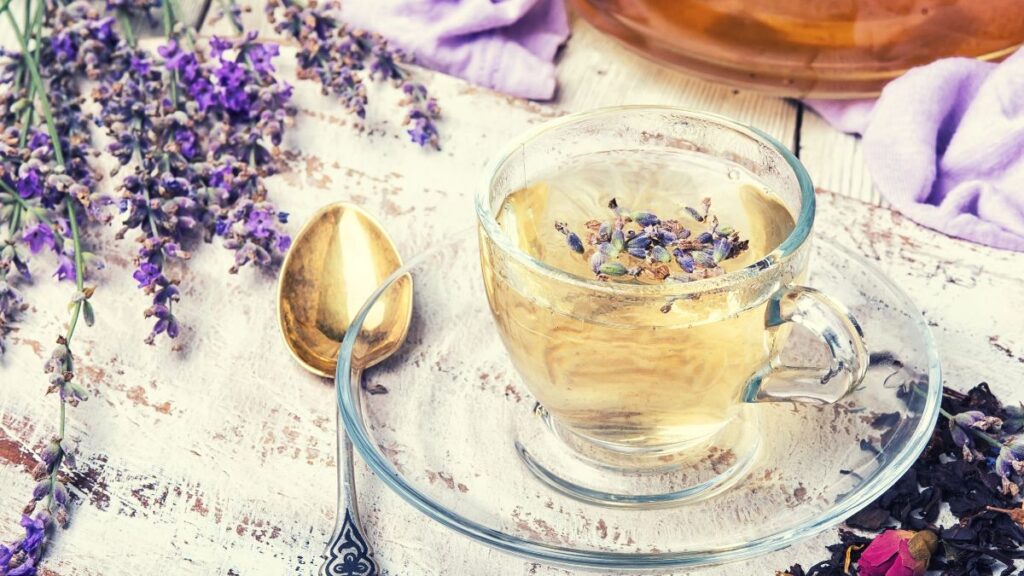
Lavender is famous for its calming aroma, but it also makes a wonderful tea for reducing stress. Lavender tea can help relax the mind and body, making it a great choice for those struggling with anxiety or restlessness.
The soothing properties of lavender are said to promote better sleep and reduce feelings of nervousness. Its floral, slightly sweet flavor makes it a delightful tea to sip when you need to take a break from a hectic day.
Peppermint Tea
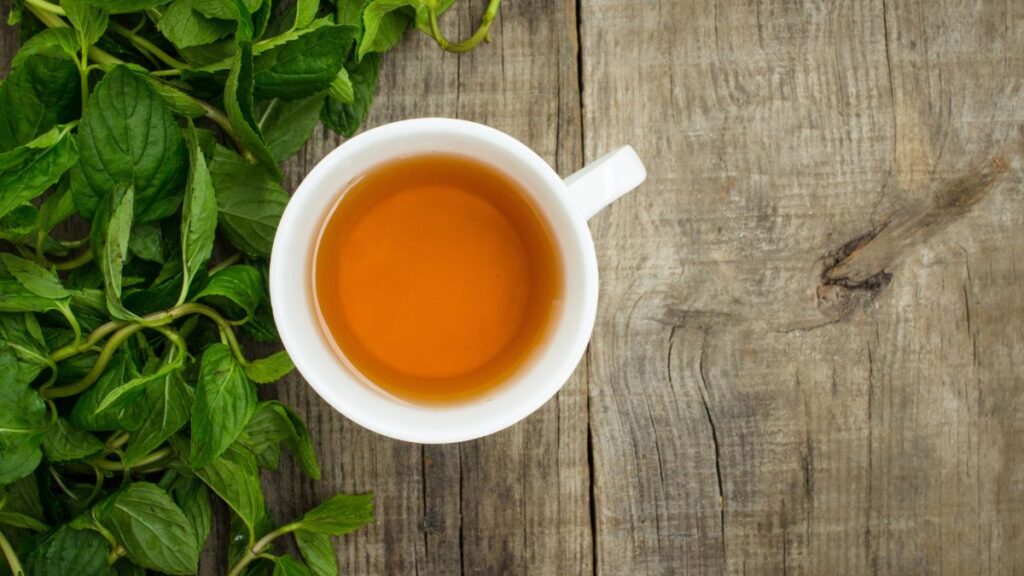
Peppermint tea is refreshing and revitalizing, but it also has a calming effect on the body. It helps relax the muscles and ease tension, making it a great option when you’re feeling stressed.
Peppermint’s cooling properties can also soothe headaches and digestive discomfort that often accompany anxiety. This tea is a great choice for those looking to relieve physical symptoms of stress while enjoying a crisp, minty taste.
Lemon Balm Tea
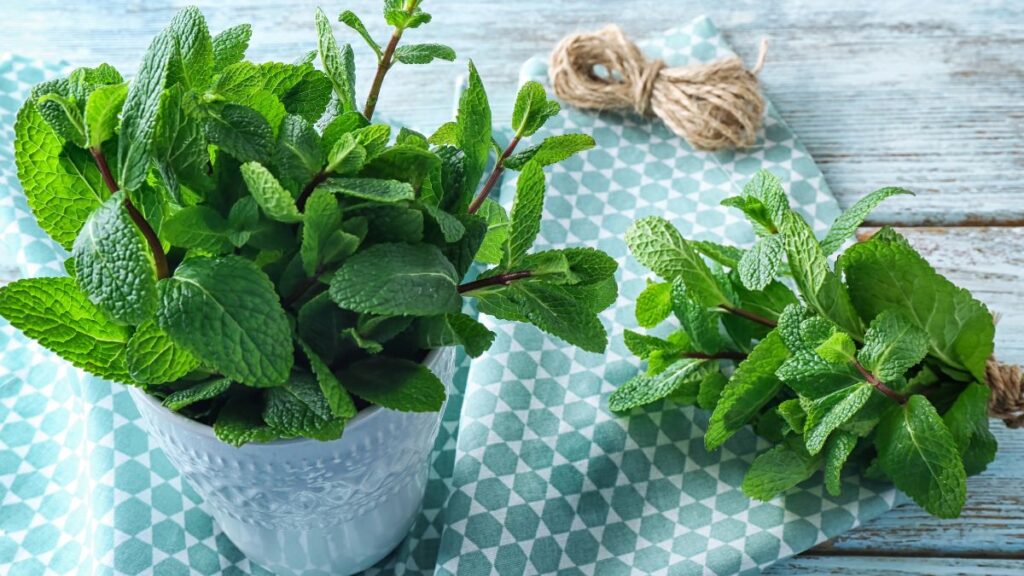
Lemon balm is a mild herb that has been used for centuries to reduce anxiety and promote calmness. This tea is known to improve mood and enhance relaxation, especially when you’re feeling overwhelmed.
It’s also great for soothing the digestive system, which can be affected by stress. Lemon balm tea has a light, citrusy flavor that is both uplifting and calming, making it a pleasant option for any time of day.
Green Tea
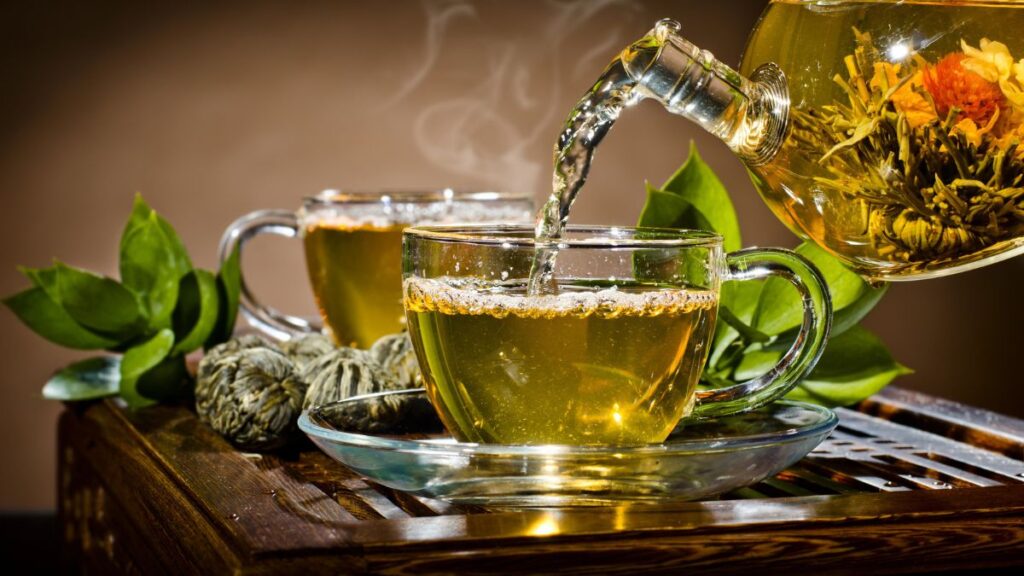
Green tea contains a unique amino acid called L-theanine, which promotes relaxation without causing drowsiness. This makes it perfect for reducing anxiety while still staying alert and focused.
Green tea is also rich in antioxidants, which support overall health and well-being. With its earthy, slightly bitter flavor, green tea is a great option for those looking to calm their nerves while staying productive.
Passionflower Tea
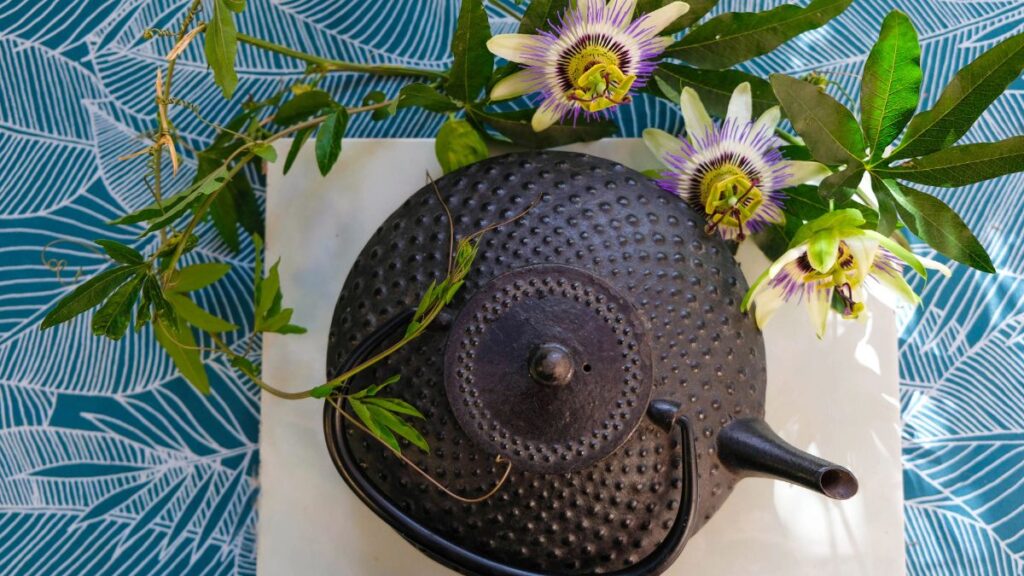
Passionflower tea is well-known for its ability to ease anxiety and promote relaxation. It’s often used as a natural remedy for insomnia and stress, helping to calm the mind and improve sleep quality.
Passionflower works by boosting levels of gamma-aminobutyric acid (GABA), a brain chemical that helps reduce stress. The mild, slightly sweet taste of passionflower tea makes it a pleasant choice for unwinding in the evening.
Valerian Root Tea
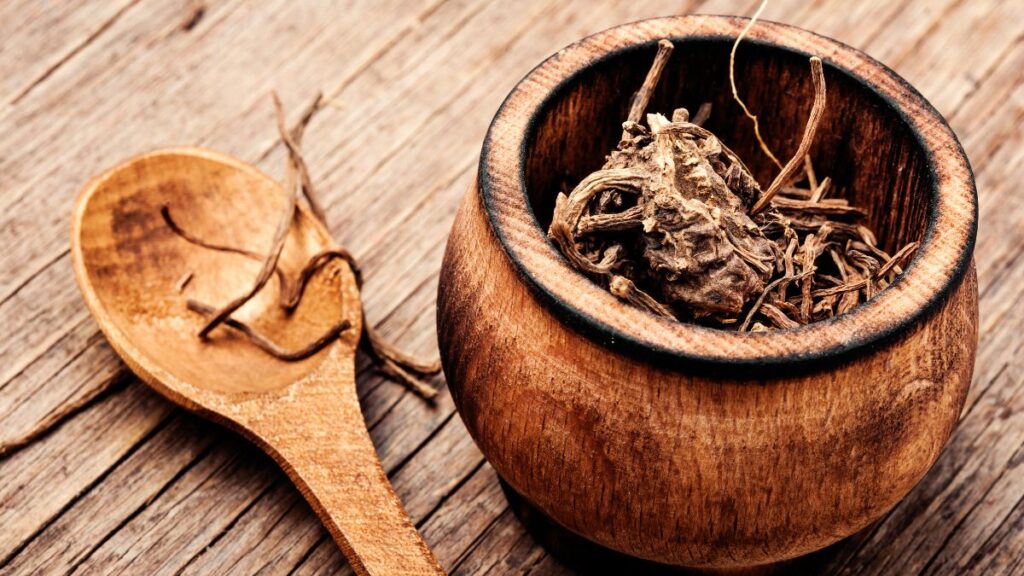
Valerian root tea is commonly used to help with sleep issues, but it’s also effective for reducing anxiety. Valerian root works as a natural sedative, helping to calm the mind and reduce feelings of nervousness.
It’s often recommended for those who suffer from chronic stress or anxiety-related insomnia. While the taste can be strong and earthy, valerian root tea is a powerful tool for deep relaxation.
Rose Tea
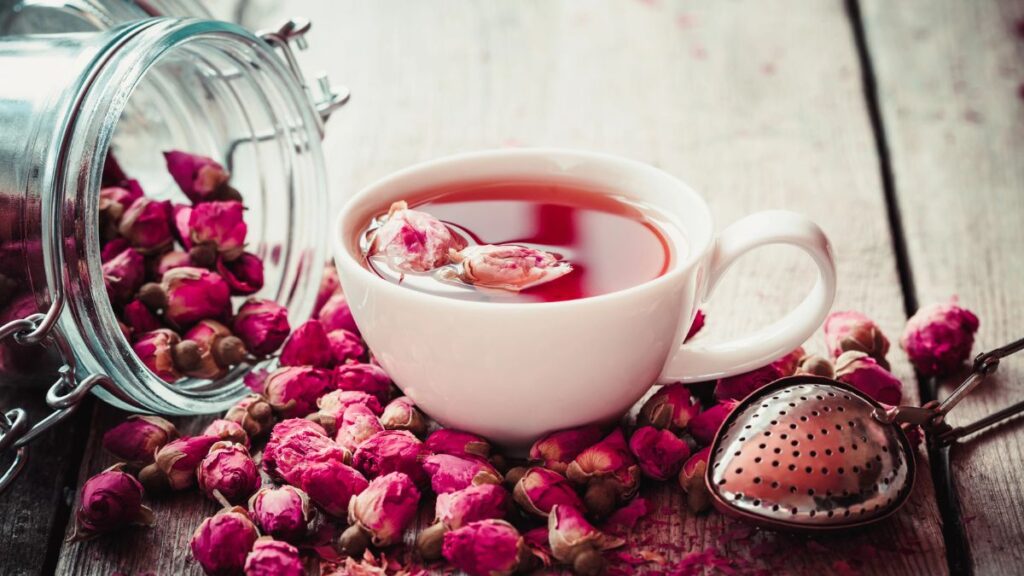
Rose tea is made from rose petals and is known for its calming and uplifting properties. The delicate floral aroma of rose tea can help ease anxiety and create a sense of peace.
Rose tea is also packed with antioxidants, which can help improve mood and overall well-being. Sipping on this fragrant tea can lift your spirits and help you feel more centered during stressful times.
Ashwagandha Tea
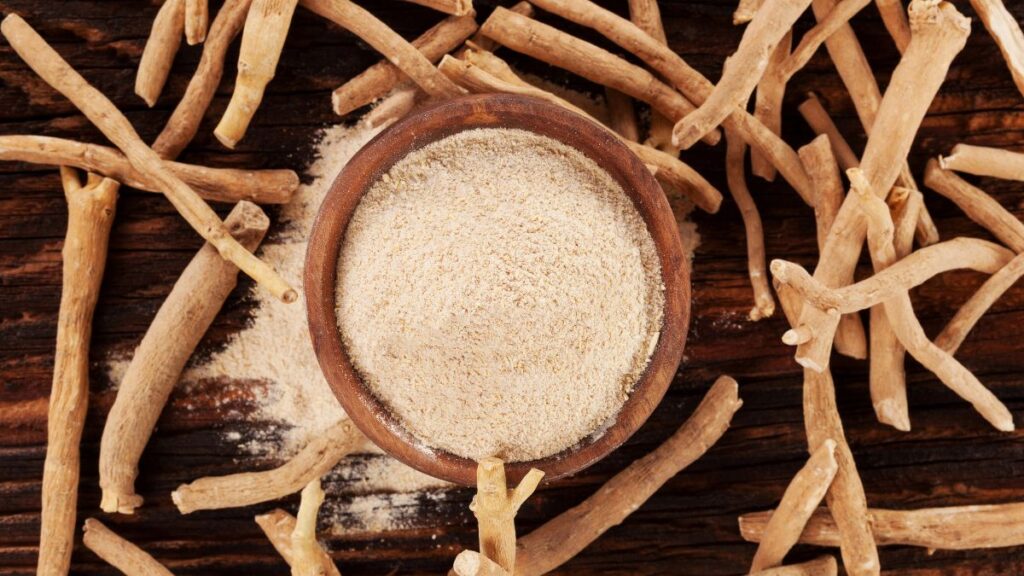
Ashwagandha is an adaptogen that has been used in traditional Ayurvedic medicine to combat stress and anxiety. Drinking ashwagandha tea helps balance stress hormones, like cortisol, and supports the body’s ability to cope with anxiety.
This tea can also boost your energy levels while calming your mind, making it a great choice for both relaxation and vitality. Its earthy taste pairs well with honey or cinnamon for a comforting blend.
Holy Basil (Tulsi) Tea
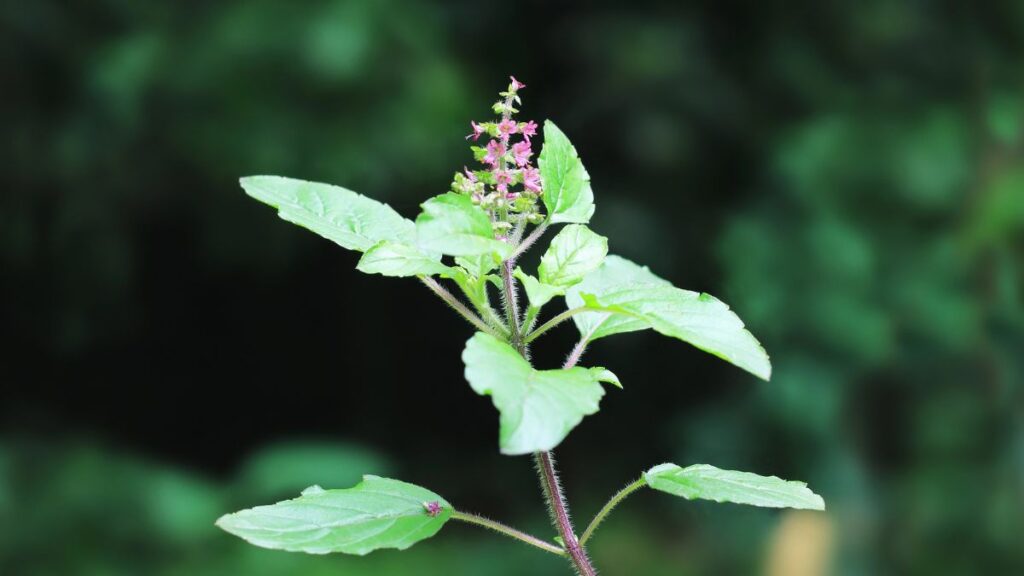
Holy basil, also known as tulsi, is a powerful herb known for its stress-relieving benefits. Tulsi tea helps lower cortisol levels, promoting relaxation and reducing anxiety. It’s also considered an adaptogen, meaning it helps the body adapt to stress and restore balance.
With its peppery, slightly sweet taste, tulsi tea is a wonderful option for calming the mind and body after a long day.
Ginger Tea
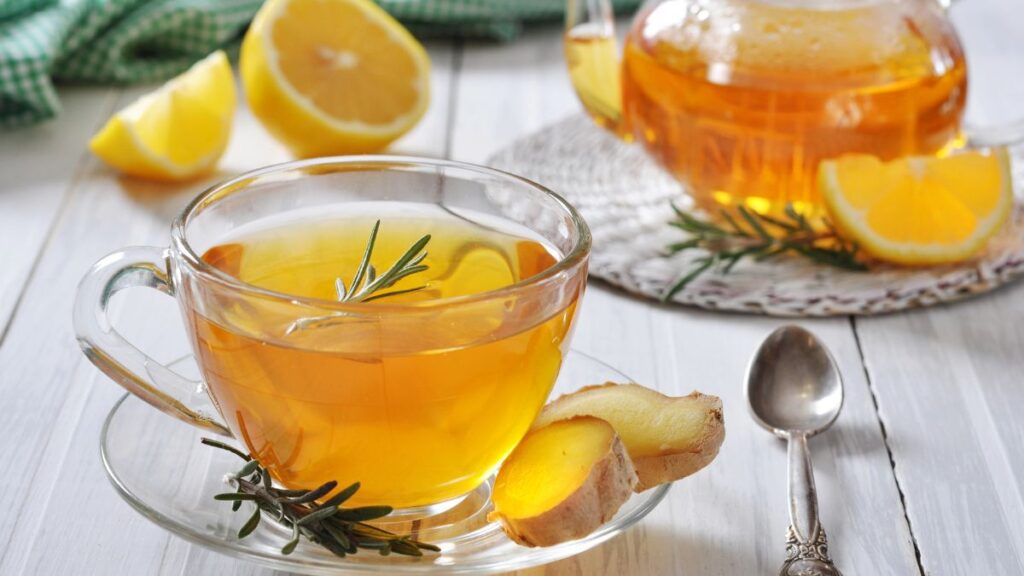
Ginger tea is often used to soothe digestive issues, but it also has calming effects on the nervous system. Its warming properties help improve circulation and ease tension, making it great for reducing physical symptoms of stress.
Ginger tea can also boost energy while promoting a sense of calm, making it ideal for those looking to relieve anxiety without feeling sluggish. Its spicy, invigorating flavor adds a kick to your relaxation routine.
Licorice Root Tea
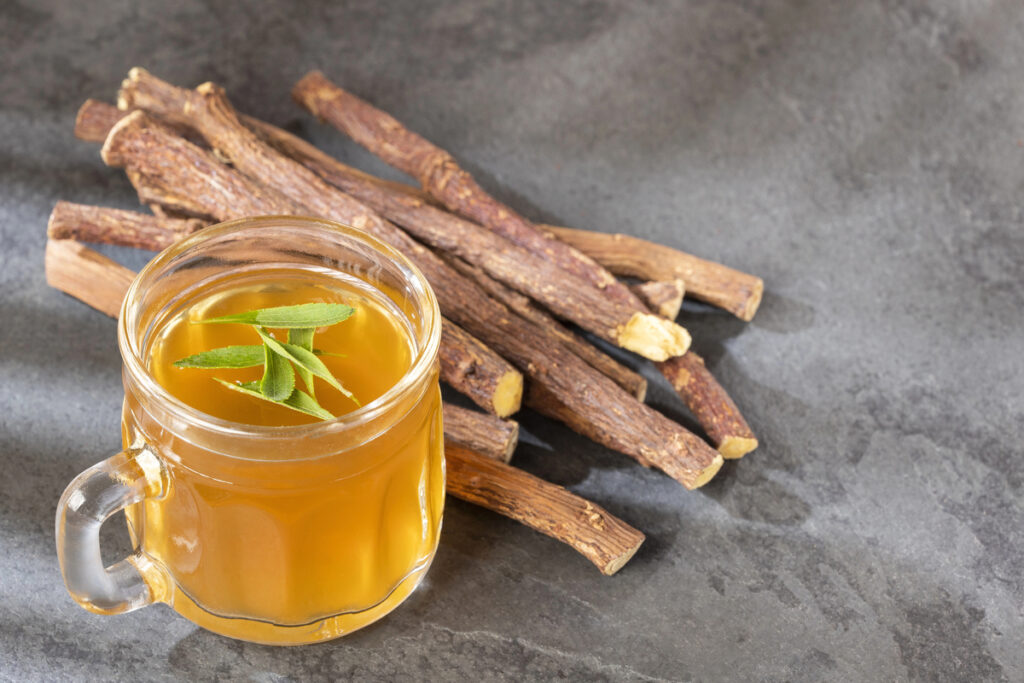
Licorice root tea has a naturally sweet flavor and is known for its ability to reduce stress. It helps balance cortisol levels, the hormone responsible for stress, and can provide a sense of calm without making you drowsy.
Licorice root is also good for digestion and soothing the stomach, which can be helpful when stress affects your digestive system. Sipping on licorice root tea can ease both your mind and body.
Hibiscus Tea
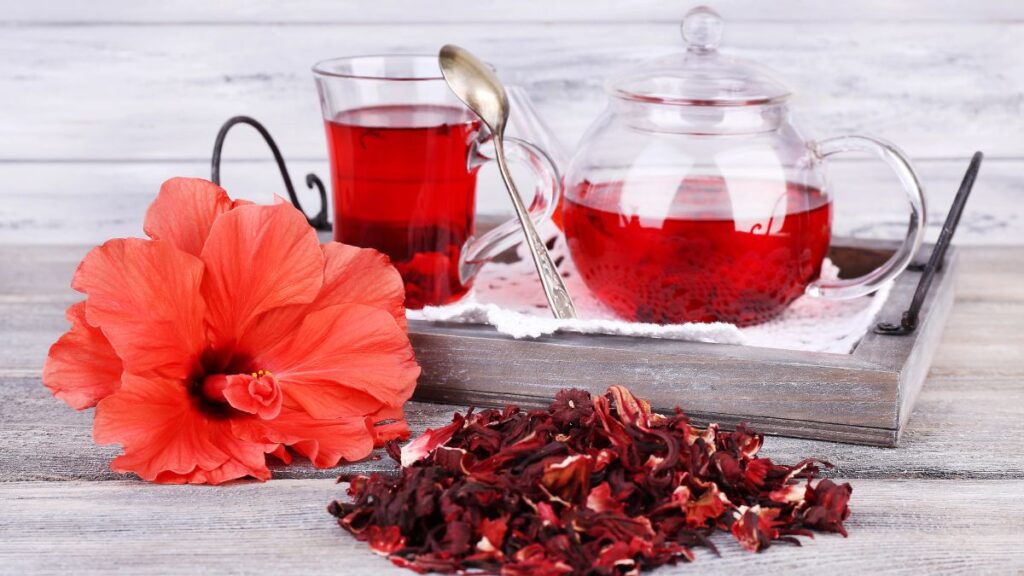
Hibiscus tea is a vibrant, tart tea that is rich in antioxidants and can help lower blood pressure, which is often affected by stress. It has a refreshing taste that can help you unwind and feel more at ease.
Hibiscus tea is also great for supporting cardiovascular health, making it a wonderful option for both relaxation and overall wellness. Its deep red color and tangy flavor make it an enjoyable tea for relieving stress.
Skullcap Tea

Skullcap is an herb that’s known for its ability to calm the nervous system. It helps reduce feelings of anxiety and tension, making it a great choice for those experiencing chronic stress.
Skullcap tea is often recommended for people who have trouble sleeping due to anxiety, as it promotes relaxation without causing grogginess. Its mild, earthy flavor is soothing and perfect for sipping before bed.
Fennel Tea
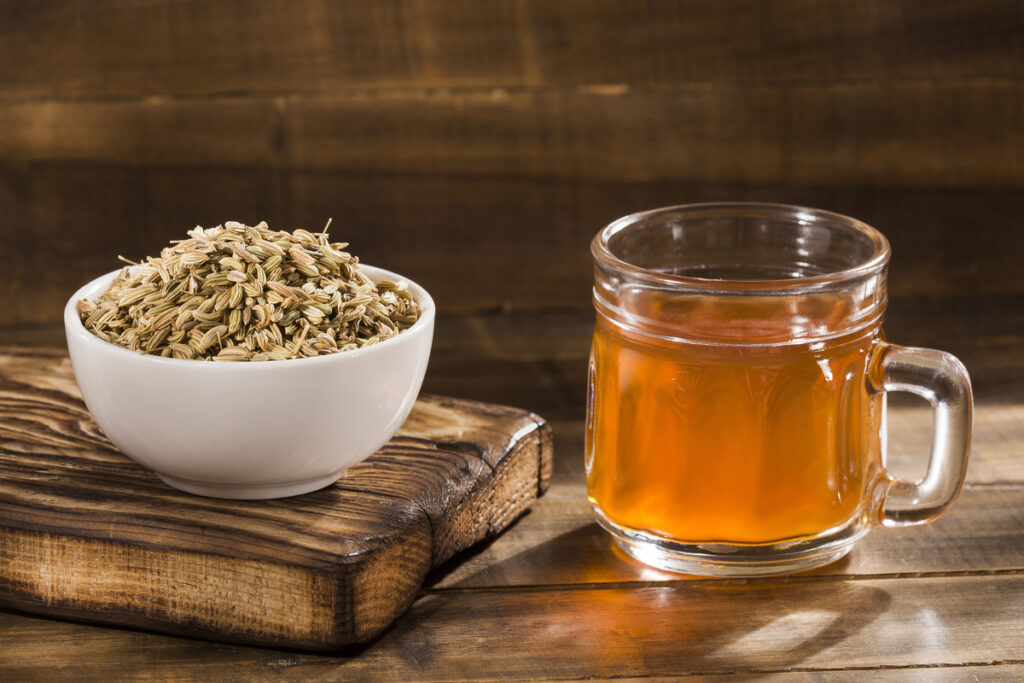
Fennel tea is not only great for digestion but also helps calm the mind and reduce anxiety. The sweet, licorice-like flavor of fennel is comforting, and its relaxing properties can help ease feelings of nervousness.
Fennel tea can also improve sleep quality, making it a helpful remedy for those who struggle to unwind at night. Drinking fennel tea regularly can promote a sense of calm and balance.
15 Places Where You’re Expected to Tip—But You Really Don’t Have To

Tipping has become a widespread practice in many industries, with the expectation that you’ll leave a little extra for good service. However, not every situation truly warrants a tip, even if you feel pressured to give one.
15 Places Where You’re Expected to Tip—But You Really Don’t Have To
15 Most Annoying Habits of American Tourists When Dining Abroad

Traveling abroad is an exciting adventure, and dining in new places is a big part of the experience. However, some common behaviors by American tourists can be frustrating for locals and affect the dining experience.
15 Most Annoying Habits of American Tourists When Dining Abroad

